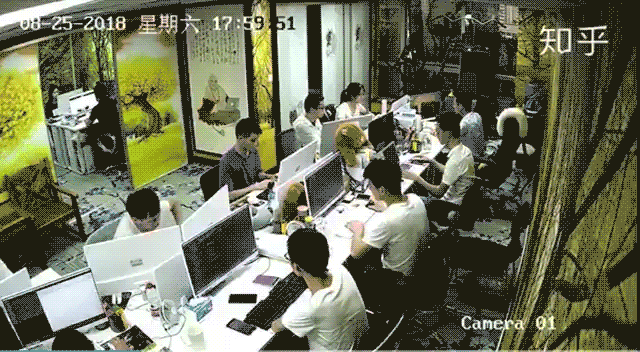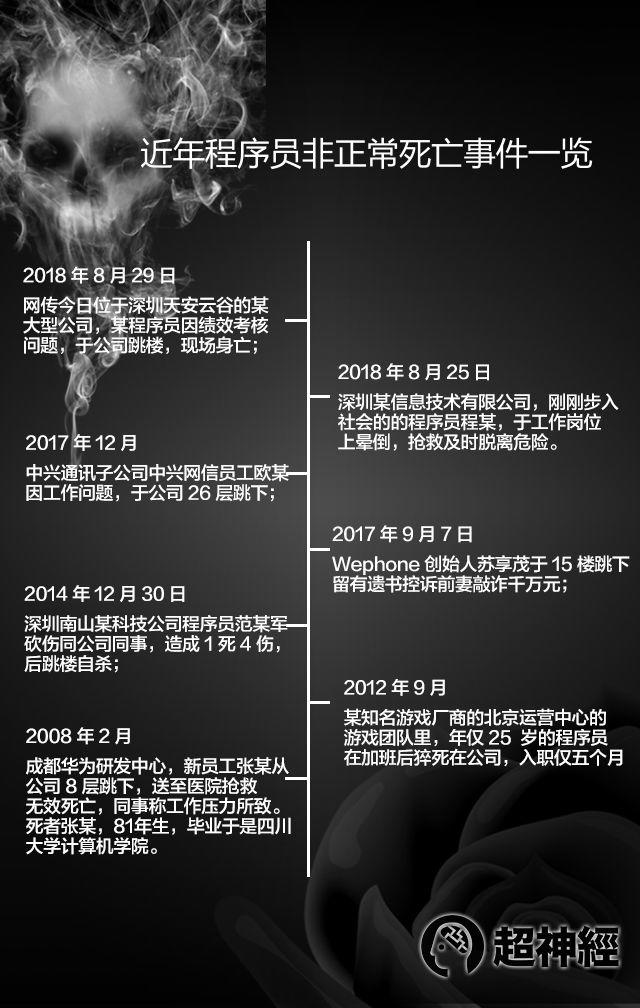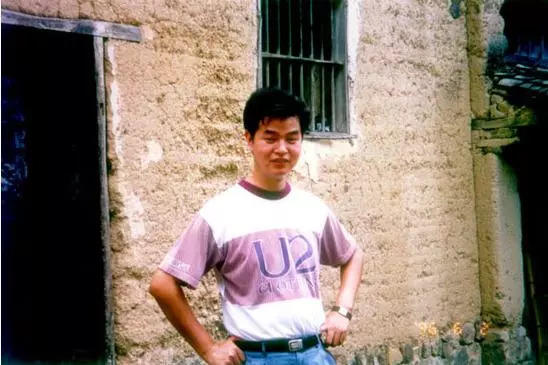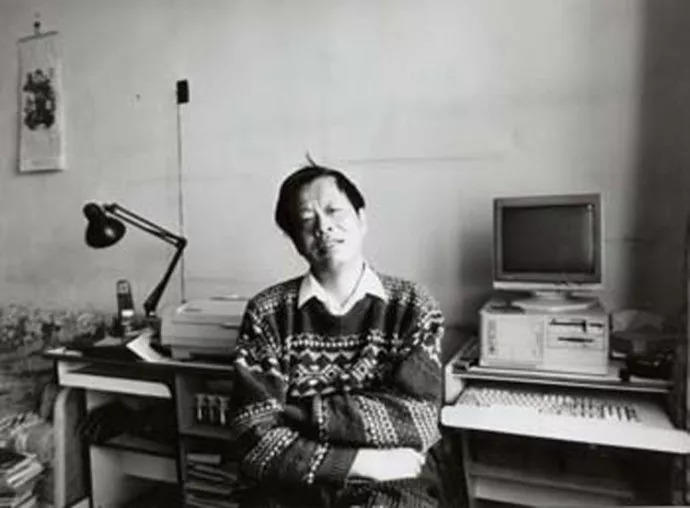Command Palette
Search for a command to run...
He Can Fix Complex Bugs, but He can't Fix His Own Life

By Super Neuro
They can fix complex bugs, build powerful network architectures, and handle huge concurrent requests, but they still can't live a good life.
This week alone, two social news stories happened to engineers:
First, on the 25th, an engineer in Shenzhen fainted at his workplace and nearly died;

Another rumor that has been circulating in recent days is that a programmer at a well-known company in Shenzhen jumped from a high-rise building because of a work performance appraisal and died on the spot.

These are not the first times that tragedy has struck; accidents involving programmers have been common over the years.

History is always similar but different
As early as the late 1980s and early 1990s, with the emergence of the software industry, China's first generation of programmers began their careers. They included Wang Zhidong, Qiu Bojun, Yan Yuanchao and Zhu Chongjun, the pioneers and legendary figures in the IT industry.
Qiu Bojun, a native of Zhejiang, was born in 1964, and is about the same age as the parents of many programmers born in the 1990s. In 1984, he graduated from the National University of Defense Technology with a major in information systems. At that time, there was no such profession as "software programmer", and Qiu Bojun was assigned to an instrument factory in the Geophysical Exploration Bureau of the Ministry of Petroleum in Xushui County, Hebei Province.
In the same year, Wang Xiaobo, also a first-generation programmer, went to the University of Pittsburgh with his newlywed wife Li Yinhe to study for a master's degree in East Asian studies. Wang Xiaobo was a whole generation older than Qiu Bojun. Although he had worked as a worker in the Niujie Teaching Equipment Factory in Beijing before, he had not yet opened up his programming talent.
In the following ten years, Qiu Bojun completed his technical accumulation as a programmer at Soitong Company and Kingsoft, and also completed the development of the first generation of WPS. The profession of programmer also began to become particularly important and scarce in the industry.
The working environment of programmers back then was much tougher than it is now. Nowadays, unlimited snacks and cola have become standard, and ergonomic chairs and standing desks are the icing on the cake for Internet companies to recruit talents.
Thirty years ago in 1988, when WPS was in the final battle, Qiu Bojun locked himself in a small hotel in Shenzhen and kept writing code whenever he was awake. When he felt sleepy, he would take a nap, and when he was hungry, he would eat instant noodles.

Although the conditions were far worse, the intensity of work at that time was comparable to the 996 work rhythm of some companies today. In that year or so, Qiu Bojun fell ill three times, the first time with hepatitis, the second time with hepatitis recurrence, and the third time with recurrence. Each time he was hospitalized for one to two months. The second hepatitis recurrence was the most critical moment for software development, and Qiu Bojun moved his computer to the ward to continue writing.
Even when the team expanded later, Qiu Bojun still led the development team as usual, working 12 hours a day, 365 days a year, and never stopped.
Although Qiu Bojun received support from Kingsoft, he still had to bear great work pressure. "Word can be produced by more than 200 people, but we only have less than 10 people. There is no other way but to work several times harder than others."
Perhaps it was because the predecessors in the early years had good physical fitness and there were no food safety or environmental safety issues, Qiu Bojun managed to survive the high-pressure work and did not die suddenly at work, nor did he commit suicide due to depression due to Kingsoft's limited budget.
In 1997, WPS 97 was released with great success. It was the first Chinese-made word processing software running on the Windows platform.
He can fix the bug, but he can't fix his life
In the following 20 to 30 years, relying on the great success of IT, Internet, mobile Internet and other industries, the profession of programmer, like the skilled workers in the 1980s, has become the most basic and most important function in this industry.
Majors such as software engineering and computer science have also become the highest-paid professions for graduates in recent years.
Thousands of boys and girls have transformed from science and engineering students to programmers. Most of them wear company T-shirts and plaid shirts, sit in front of a small fluorescent screen, type all day, work overtime to catch up with the progress, and receive a salary of several dozen K at the end of each month.

If they are lucky and the company rings the bell or they go ashore early, they can often have middle-class savings overnight, but they all choose to live a simple life like workers and students.
It seems that upgrading their equipment and tools can inspire the greatest joy in their lives.
In many Internet companies, even the receptionist who earns less than half of the programmers' lives a more colorful life than them. Most programmers do not pursue a rich spare time, nor do they care about fitness and island vacations. Even when it comes to dating, they can't wait to find a new one.
The programmers have too similar appearances and personalities, and even the new HR girl often can't tell who is who. Once they encounter complex problems in work and life, they reveal their childish nature.
Even though he had worked as a technical mid-level manager at ZTE for more than a decade, facing the eloquent HR, he did not know how to negotiate and protect himself, and he could only think of ending his life. He had a house and a car, his children were young and cute, and his wife took care of the housework. His life was obviously much more leisurely than that of old man Zhang in the tea room.
Old man Zhang was also surprised that Mr. Ou, who was usually amiable, could be so depressed. He also thought about his wife who had been ill at home for many years. Although the family was in debt, he still had hope as his son was about to graduate.

The boy who suddenly collapsed at work just after graduating from school in Shenzhen left behind the care of his parents and family, and the protection of the school and teachers. He entered the workplace in a panic, not knowing the harm of having a reversed day and night schedule and irregular meals. Lacking life experience, he also did not realize that his body had reached its limit of fatigue.
The girl at the front desk of the same company, who earns a salary slightly above the average in this city, goes home early every night to put on a face mask and watch TV series, thinking only about how to squeeze out the pocket money for next year's gym membership. She saw her programmer colleague fainting in the company, and was surprised how this 7-foot-tall man, who earns much more than her monthly salary, fainted.
The situation these programmers faced was not really difficult, and it might not even be a big deal for other people in society. It was a pity that they had received a good education, and had an income and working environment that most people envied, but ended their lives in such a hasty way.
They can fix complex bugs, build powerful network architectures, and handle huge concurrent requests. They are clearly the group of people closest to the social truth of this era, but they cannot solve the layers of problems brought by life.
end
Back in 1997, at the end of the year when WPS achieved great success, Bill Gates visited China for the second time.
On the same day that Bill Gates arrived in China, the "Oriental Horizon" program team of CCTV-1 specially invited Qiu Bojun for an exclusive interview. He chatted with the host about how he devoted himself to developing WPS under the shadow of Microsoft and became a representative of national software.
The entire interview took more than five hours to record, but only less than six minutes was broadcast. The reason was probably that at that time, the popularity of PC in Chinese households was far less than 1%.
But this does not affect Qiu Bojun being called a pioneer of Chinese programmers, because he is not only the healthiest among the first generation of Chinese programmers, but also the first to achieve huge commercial success.
In the spring of the same year, Wang Xiaobo died in Beijing of a sudden myocardial infarction due to long-term fatigue and unhealthy living and eating habits.

This romantic and talented writer not only owns a 286 computer, but also taught himself programming for several years and developed many small tools for his own use, including input methods and editors, showing a strong geek spirit.
Before his death, Wang Xiaobo wrote in a letter to a friend:
I finally made up my mind to buy a 286. These days I have been modifying the software and doing a lot of assembly work.
Now it is finally a complete success. My software can now edit files up to 400K in length, and can write a whole novel in memory. Wang Xiaobo and Qiu Bojun certainly never thought of this at that time.
Now, thirty years later, even though my industry has become so prosperous, the outcome is still similar.

Author: Nervous Sister
Source: HyperAI "Entropy Matters" column
